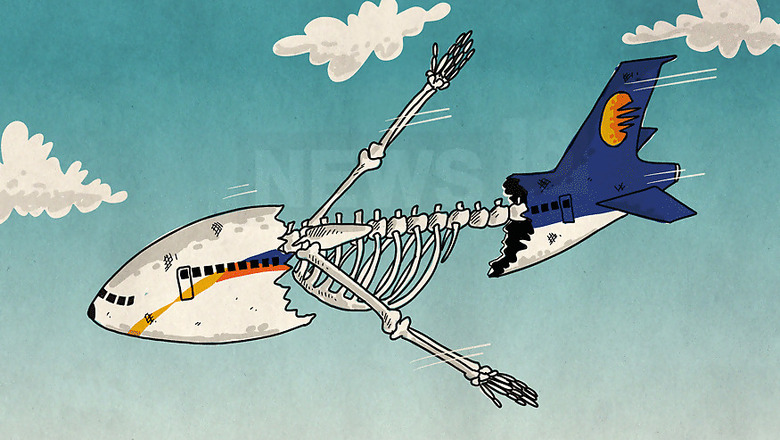
views
New Delhi: Jet Airways has once again found itself in the eye of the storm, as this time, it faces the turbulence of a bad set of numbers in the third quarter of the current financial year, which has further dented its liquidity situation.
The airline’s financial performance in the quarter gone by, was a cocktail of higher fuel cost, rupee depreciation, lower capacity and loss of market share. Even though the company has proposed a resolution plan to keep itself afloat and improve its financial performance, there's still not enough clarity.
Apart from the usual steps -- such as cutting down on loss-making routes, focussing on revenue management and cost optimization -- the company has come up with a resolution plan in order to continue to navigate the sky and avoid a crash landing.
In this plan, the existing lenders will be issued 11.4 crore shares for a consideration of Re 1 only (lenders can convert debt to equity at Re 1, when the book value per share of a company is negative) which will result in a fall in holding of the existing promoters Naresh Goyal's stake to 25.5 percent,and Etihad's to 12 percent -- while lenders will have a majority stake of 50.1 percent.
Apart from this, equity infusion and additional debt would be taken to keep the company afloat.
The Bank-led Provisional Resolution Plan (BLPRP) proposes restructuring in order to meet a funding gap of nearly Rs 8,500 crores, which it aims to meet with an appropriate blend of equity infusion, debt restructuring, sale/ sale and lease back/ refinancing of aircraft, among other things.
The company has been struggling to perform well operationally as well.
In fact, it has been losing market share to its competitors which stood at 13.9 percent as of December 2018, much lower than the high of above 20 percent that it achieved in July 2014. This, combined with the fact that Jet being a full service carrier has very high cost structure, makes it vulnerable to higher fuel prices which is not in control of the airline.
Besides, Jet's business model is based on asset heavy business, leading to mounting of debt and a rising interest outlay. The resolution plan could give some liquidity to the business, but to get its competitive edge back, Jet warrants a complete overhaul of its strategy under a dynamic leadership team.
While the closure of Jet barely months before the general election would have been politically unpalatable and would add to the woes of the banks, it remains to be seen if equity holders can really see the unfolding of events as an opportunity.
For lenders, the conversion of debt to equity paves the way for equity upside, should the business turnaround meaningfully.


















Comments
0 comment